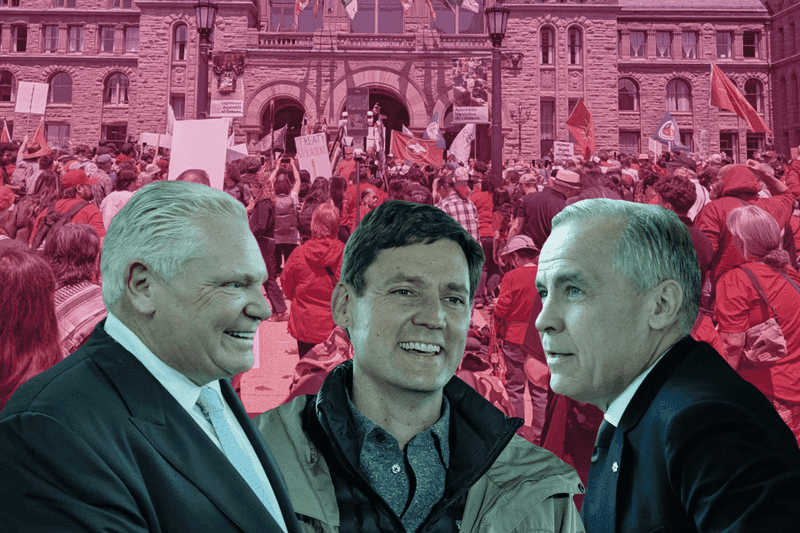
Back in the 1970s, leaders of the world’s poorer nations challenged the imperialist ambitions of the United States of America. Governments of the South had been emboldened by the 1973 decision of OPEC countries to quadruple the price of oil. Poor commodity exporters were leveraging their power over the oil-consuming North. In response, US diplomats panicked. They reasoned (correctly) that the G77’s subsequent demand for a New International Economic Order (NIEO) – backed by some European governments – implied the end of the Atlantic alliance.1 They were right to be worried. In an interview, Algerian President Houari Boumédiènne attacked American imperialism and sought to divide the opposition by drawing Europeans into the G77 alliance:
"… we complement each other and can work together to our mutual advantage. Europe finds itself at a crossroads. It is slowly starting to assume a global role. If it accepts being a faithful ally of American imperialism, it will become our adversary; if instead, it opts for an independent role, it can, with our cooperation, do great things.”2
Europe chose a different path, and became a faithful ally of US imperialism.
The G77 and the NIEO
The challenge launched by the G77 back in 1974 was made manifest at the United Nations on the May 1 – International Labor Day. On that day, the UN General Assembly adopted a resolution calling for “economic decolonization” and a “right to development”. The Group of 77 countries deplored the economic colonisation that had replaced political colonisation. They demanded the establishment of a New World Order that would promote development and redistribute wealth and power from the rich North to the poor South.
The choice of International Labour Day was not accidental. It was intended to mobilise workers of the South to challenge the dominance of imperialist capital. The earlier decision taken in 1971 by US President Nixon to tear down the existing international order – the Bretton Woods system – had one single aim: to restore the dominance of western, mainly American, capital over the working people of the world, but particularly of the South.3 This was to be achieved through a system of globalised and deregulated finance; through the application of deflationary policies; by the privatisation of public assets; and by the violent extraction of the South’s mineral wealth. Responding to these grave threats, the G77 demanded a New International Economic Order to defend the millions of citizens of the South – the 99% – that can broadly be defined as labour.
The ‘Nixon Shock’, as the 1971 unilateral decision came to be called, was, at the time, the biggest sovereign default in history. The United States simply refused to repay its foreign obligations in gold, as promised. Instead, the US Treasury offered to replace the multilateral and internationally cooperative Bretton Woods fixed-exchange rate regime with a system based on a single currency: the US dollar. This was to be backed by the asset that is US sovereign debt – the Treasury Bill. That decision, coupled with the 1973 decision to price all oil sales in dollars (the petrodollar), reinforced the strength and global dominance of the US empire in the evolving financialised system.
The international system that succeeded Bretton Woods had been cobbled together by Wall Street and the City of London – that is, by the world’s wealthiest and by its most powerful creditors. They were to be represented by the IMF, which thereafter acted as loyal and often brutal gatekeeper to the world’s capital markets. The central objective of the new international system was to maintain the value of creditor assets – loans or debts made by the Washington-based international financial institutions, sovereigns of the North, and private Wall Street and City of London financial institutions, including banks, shadow banks, asset management funds, and other lenders. To achieve that goal, central bankers like the US Federal Reserve’s Paul Volcker, urged by their allies in Wall Street and elsewhere, adopted deflationary policies, the central purpose of which was (and is) to protect the value of vast mountains of private debt being eroded by inflation.

Nixon’s overt aim came to pass. Fifty years later, unregulated global capital markets have transformed the balance of power between labour and capital worldwide, between countries of the South, and the North; between creditors and debtors; between the world’s exporters and importers; and above all, between the 1% and the 99%. The globalised financial system now operates on terms set by capital. There has been a rebalancing between the capital gains of the 1% and the wages of labour, with the former skyrocketing and the latter stagnating.
Financial deregulation – in particular, the removal of controls over cross-border capital flows – enabled the world’s wealthy billionaire class (based in Wall Street, London, Frankfurt, and Silicon Valley) to monopolise, exploit and extract both human and natural resources worldwide. Since that fateful May Day in 1974, twenty-first century capitalism has morphed into global imperialism and has shifted in important ways. Key features of this system, as Susan K. Sell has argued, include:
“the outsized role of intangibles in the global economy (e.g. intellectual property, services, financial instruments such as derivatives and securities); the rise of financialization, the quest for profits over economic growth, and the pursuit of competitiveness – not competition – in global markets.”4
With the collapse of Bretton Woods, the system revived the power and dominance of international creditors – rentiers, both public and private. At the same time, it denied sovereign debtors recourse to the insolvency procedures that protect private, commercial debtors from immiseration by creditors. As a consequence, worldwide returns to labour – wages – have been allowed to fall and stagnate.
States were encouraged to remodel their economies away from full employment and prosperity at home, and to choose instead international competitiveness (as opposed to increased domestic competition), and the expansion of exports. Today, the struggle between global creditors and debtors is mirrored by trade wars between the world’s exporters and importers.
As Klein and Pettis argue in their book, Trade Wars are Class Wars, the purpose of the new system was twofold: first, to benefit big corporations and the 1% – exporters of commodities, goods and services, and the world’s extractive industries. Second, to force low-income countries to prioritise the export sector in order to generate hard currency revenues needed to repay debts to international public and private creditors. That reorientation of both rich and poor economies, argue Klein and Pettis, has led to:
“the problems of the past few decades [which] have their roots in… massive transfers of income to the rich and the companies they control... while the incomes of the 99% are cut or remain stagnant.”5
In other words, trade wars have their origins in inequality at home. And the levels of inequality that now predominate have dire consequences. This is because when incomes fall, collectively and in relative terms, the population as a whole buys and uses fewer of the products manufactured by their economy. This leads to under-consumption, underemployment and, simultaneously, to the overproduction of capital, goods and services. The result is the build-up of surpluses of, for example, gold, sugar, coffee, clothing, steel or gas. What to do with these surpluses? In the open, largely unregulated global economy, there is only one outlet for a nation: to dump its surpluses abroad. This allows the home economy to keep working at full capacity even while it victimises the countries on which its products are dumped – a process known as “beggaring thy neighbour.” Furthermore, this system enriches exporters even as workers’ wages are cut and their purchasing power falls or stagnates.
This system was first understood by economist J. A. Hobson, and outlined in his book, Imperialism: A study, published in 1902.6 It arose from his direct experience of Britain’s colonial role in the South African Boer War of 1899–1902. Covering the conflict for the Manchester Guardian, Hobson argued that the Boer War had been instigated by rich mine-owners and exporters like Cecil Rhodes. He and his City of London allies declined to invest to raise living standards in their home market, Britain. They favoured “the struggle for profitable markets of investment” abroad. The expansion of the British empire ensured that Britain’s “surplus” products, mainly manufactured goods, were dumped on colonies like India and South Africa – to the detriment of those economies. “Britain”, Hobson argued in 1902, is:
“a nation living upon tribute from abroad, and the classes who enjoy this tribute have an ever-increasing incentive to employ the public policy, the public purse, and the public force to extend the field of their private investments, and to safeguard and improve their existing investments.”
The taproot of today’s imperialism is under-consumption in both countries of the South and the North. Investment, full employment and decent incomes for workers in the domestic economy are sacrificed in favour of export revenues – tribute – generated abroad. This sacrifice is coupled with the distortion of taxpayer-backed subsidies for wealthy exporters, embodied today in organisations such as UK Export Finance, and the US’s Export Credit Guarantee Program – both state-backed institutions which subsidise exporters and investors in foreign markets, protecting them from losses associated with market failure. Such public subsidies are generally not available to home-grown farmers, producers, and investors.
The post-war Bretton Woods system, devised in 1944 by economists from both the North and South (as Eric Helleiner has explained in The Forgotten Foundations of Bretton Woods), had deliberately set out to prevent the build-up of trade surpluses and deficits, and of financial imbalances – which, they argued, had led to the imperialist wars of the early twentieth century.7
The consequences of these gains by capital have been calamitous for the world’s workers, for economies of low-income countries, and for the political and ecological security of nations. In 2022, the IMF was forced to warn its members of a “dangerous global debt burden” and called for a “global cooperative approach” to the resolution of sovereign debt crises. As UNCTAD economists pointed out, the current trend simply makes transparent long-standing asymmetries and systemic flaws in the prevailing international financial system.
Survival stakes
Back in the 1970s, as the G77 were calling for a NIEO, scientists calculated that doubling the stock of atmospheric carbon would likely increase global temperatures by 3 degrees centigrade.8 At the time, the world was dumping 5 billion metric tons per annum into the atmosphere. Fifty years later, the world is dumping 10 billion metric tons of carbon every year – and by doing so, riding what some scientists are calling “the hockey stick of doom”. To protect life’s support systems and to achieve a radical and urgent transformation, societies must escape from capitalism’s globalised, carbon-belching financial system – designed and engineered to issue trillions of dollars of unregulated credit to fund both speculation in commodity markets, triggering inflation; and debt-fuelled over-production that fuels toxic emissions. For humanity to survive, we can no longer afford to bend to the will of the gods of finance. We can – and to survive, we must – transform and end the financialised global system of capitalism that now threatens the earth’s life support systems and human civilisation.

Ann Pettifor is a political economist, and author of The Case for the Green New Deal and The Production of Money*.*





